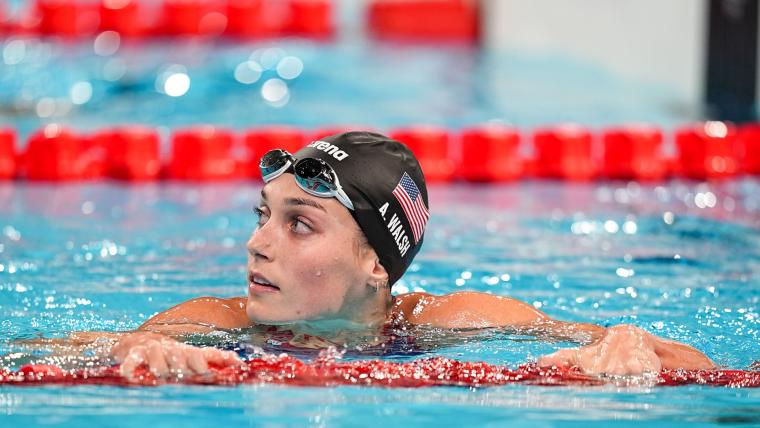U.S. swimmer Alex Walsh, who had been a strong contender in the women’s 200-meter individual medley (IM) at the Paris Olympics, faced an unexpected and controversial turn of events. Despite a remarkable performance that saw her finish third, Walsh was disqualified due to a technical violation during the race, casting a shadow over her achievement.
Alex Walsh, who won a silver medal in the same event at the 2021 Tokyo Olympics, appeared poised for another podium finish. Throughout the race, Walsh showcased exceptional skill and speed. However, as she entered the final stretch of the freestyle lap, she was narrowly beaten by Canada’s Summer McIntosh and her American teammate Kate Douglass. Walsh’s disqualification came as a result of an illegal turn during her transition from backstroke to breaststroke.
In the medley race, each stroke must adhere to specific rules. For backstroke, swimmers must touch the wall while on their back before transitioning to the next stroke, in this case, breaststroke. Walsh’s disqualification stemmed from her backstroke-to-breaststroke transition, where she inadvertently turned onto her stomach before completing the required backstroke touch. This misstep led to her disqualification under the stringent rules of the event.

The transition from backstroke to breaststroke in the individual medley is one of the most technically demanding aspects of the race. Swimmers have several methods for executing this turn, each with its own level of risk and precision:
- The Standard Turn: Swimmers touch the wall while still on their back and then pull their knees in to push off while on their stomach.
- The Backflip Turn: This involves diving deeper into the water and performing a backflip, transitioning to the stomach in one fluid motion.
- The Crossover Turn: A riskier method where swimmers touch the wall on their side and rotate less than 90 degrees to transition to breaststroke, maintaining contact with the wall throughout.
Walsh’s disqualification underscores the importance of meticulous execution in these transitions, where even minor deviations can result in significant consequences.Adding to the story’s emotional depth, Alex Walsh’s younger sister, Gretchen Walsh, also competed in the Paris Games. Gretchen achieved notable success, winning gold in the 4×100-meter mixed medley relay and securing silver in both the 100-meter butterfly and the 4×100-meter freestyle relay. The Walsh sisters’ achievements and the drama surrounding Alex’s disqualification highlight the intense pressures and high stakes of Olympic competition.
Alex Walsh’s disqualification serves as a poignant reminder of the fine margins that define success in elite swimming. Despite the setback, Walsh’s talent and determination remain evident. Her experience illustrates the intricate nature of competitive swimming and the impact that technical details can have on athletes’ careers.
Resources:
1.https://time.com/7007422/alex-walsh-disqualified-swimmer-paris-olympics/